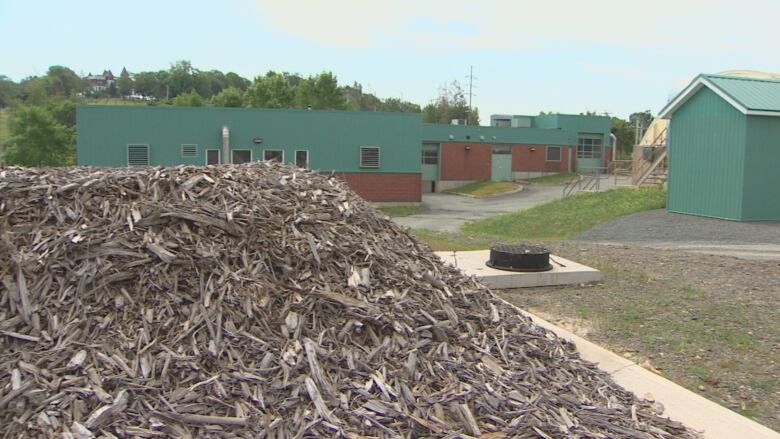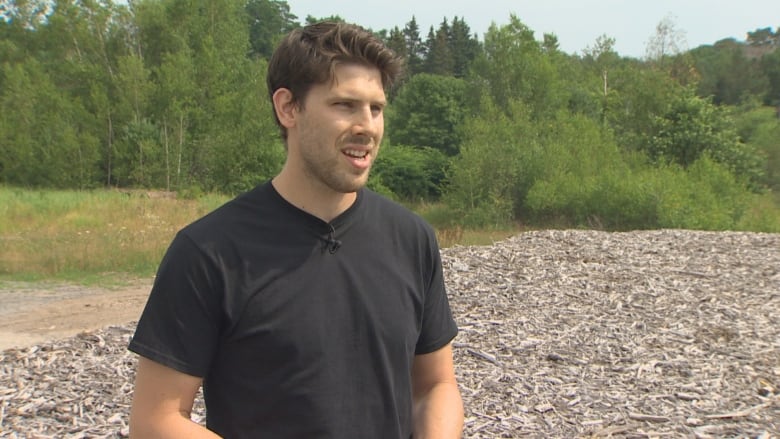Stinky Nova Scotia town uses tree-root biofilter to clear the air
After several summers of stench, Lunenburg engineers a way to have microbes eat its sewer gas

A stench that has hung over Lunenburg, N.S., for the last few summers has been defeated by a new biofilter at the town's sewage treatment plant.
Ronald Thurlow lives not far from the plant and said Lunenburg usually stinks to high heavens during high summer.
"With the sewage plant down there, during the summer months, it's wicked. If you're out on the deck, or outside, you more or less have to go inside and close everything up," he said Thursday.
It sickened locals and made tourists who came to the town, a UNESCO World Heritage Site, plug their noses.
But now Thurlow keeps his windows open and lounges happily on his back deck. He inhales deeply. "Good. Way better than what it had been."
And it's been smelling like roses all summer.

Over at the sewage treatment plant, Taylor Rombaut shows how they fixed it. As the town's water resources operator, he experienced the stink first-hand — or should that be first-nose?
The problem was that the exhaust from the treatment plant pumped right into the air. Winds carried it over the town, sending people running inside.
Now the air is piped underground and pushed up through a thick biofilter of crushed roots. When it was installed over the winter, they doused it with raw sewage to grow microbes inside the biofilter.

"Now when the gas comes through, it comes into contact with the microbes. They metabolize the bad gases and … well, you can smell it. There's not much smell at all," he said.
Basically, the microbes eat the stinky gas and what's left carries no odour. The project cost $1.8 million, spread over three levels of government, and should end the summer stink.
The technology was created in Germany and came from a Canadian company called Ambio Biofiltration.
